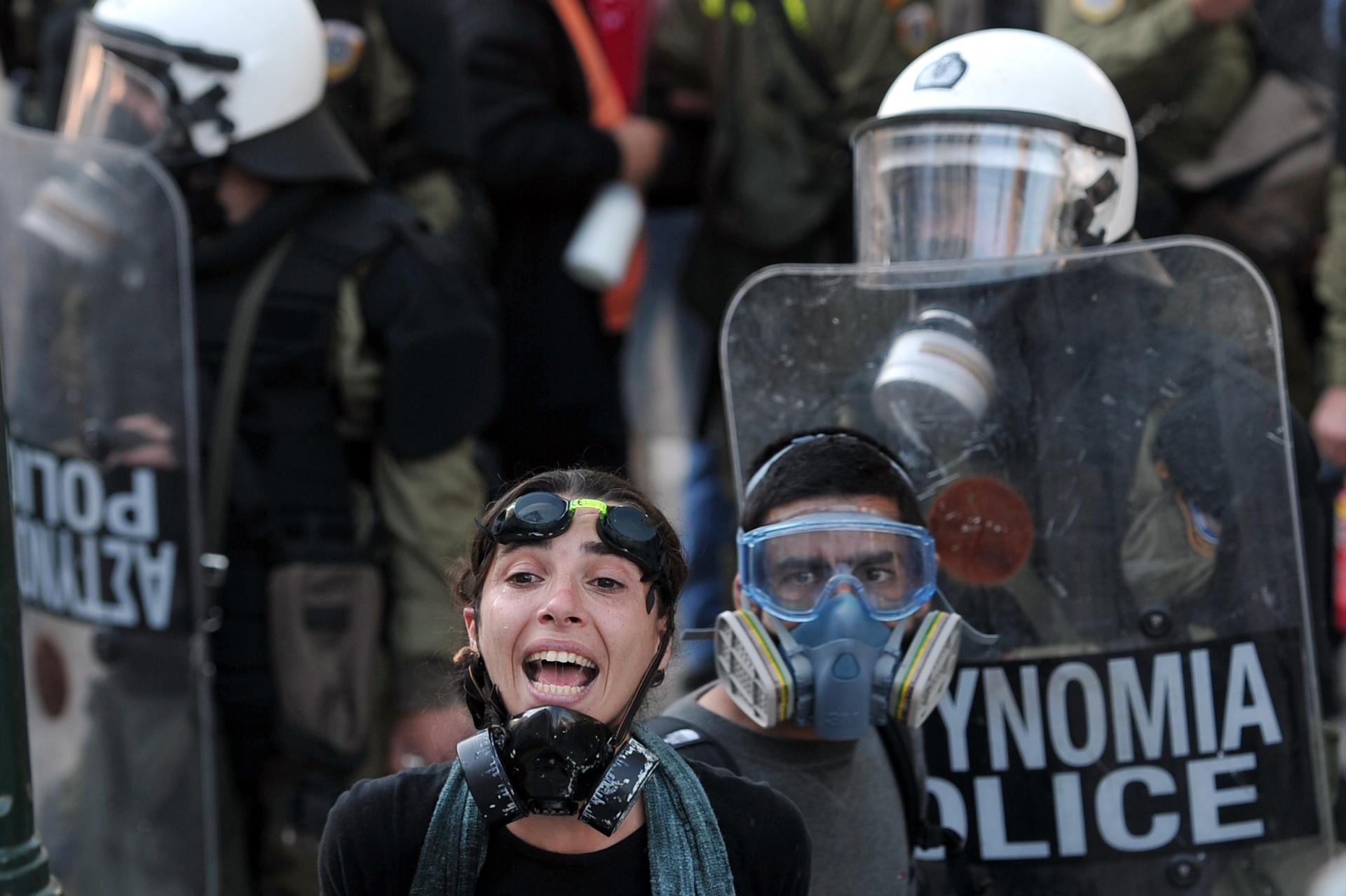Protestor chic: How Greeks prepare for tear gas
A demonstrator shouts in Athens on October 20, 2011. After repeated clashes with police, Greeks have become skilled at choosing the right protective gear. Maalox is a must.
Athens — Greeks have become seasoned protesters, so much so that many of them don't leave home without a few essentials. Among the items on the checklist are gas masks, swimming goggles, dust masks, a motorcycle helmet, and Maalox.
Yes, Maalox.
"I came prepared today," said Lefteris Kirousis, a 60-year-old university professor who spread white-colored liquid Maalox on his face to protect against the burning sensation of tear gas.
He also donned a dust mask Thursday. The math professor is a fast learner. On Wednesday, he and his sister were surprised to see riot police charging toward them, south of Syntagma Square. Officers were trying to clear the square after masked protesters threw Molotov cocktails at them during demonstrations against austerity measures.
"There was nobody provoking anything. Nobody was wearing black masks, nothing. We were normally dressed," he said. "Suddenly, police started throwing chemicals at us. I couldn't breathe. I almost fainted."
A quick check of three pharmacies in the area proved the professor is not alone. All three had sold out of Maalox and dust masks. One pharmacist said she sold more than 20 bottles of Maalox, which is made to provide relief to heartburn and diarrhea.
Closer to Parliament, 23-year-old Nick, who declined to give his last name, wore a gas mask around his neck, and carried swimming goggles.
"It's not enough, unfortunately," he said. "Police have much more equipment. You can't defend yourself enough to survive here. So you have to leave or you hide."
His parting thought: "A motorcycle jacket would be good. It has padding."
Vendors walked through he crowds of protesters Thursday selling goggles, dust masks and bottled water. The asking price for the mask was three euros, but it dropped to two after a brief negotiation.
Freelance photojournalist Kostas Tsironis said protests turned especially violent after the December 2008 shooting death of a 15-year-old boy by police. His hard-shelled helmet is attached to his belt.
"It's a must-have," he said of the helmet "because you don't know who is going to attack you, the police or the protesters."
A recent report by the nonprofit Reporters Without Borders said photojournalists are targeted by both sides during protests; by police who don't want their faces in the newspaper, and by protesters who have a strong distrust of the Greek media in general.
The World is an independent newsroom. We’re not funded by billionaires; instead, we rely on readers and listeners like you. As a listener, you’re a crucial part of our team and our global community. Your support is vital to running our nonprofit newsroom, and we can’t do this work without you. Will you support The World with a gift today? Donations made between now and Dec. 31 will be matched 1:1. Thanks for investing in our work!
